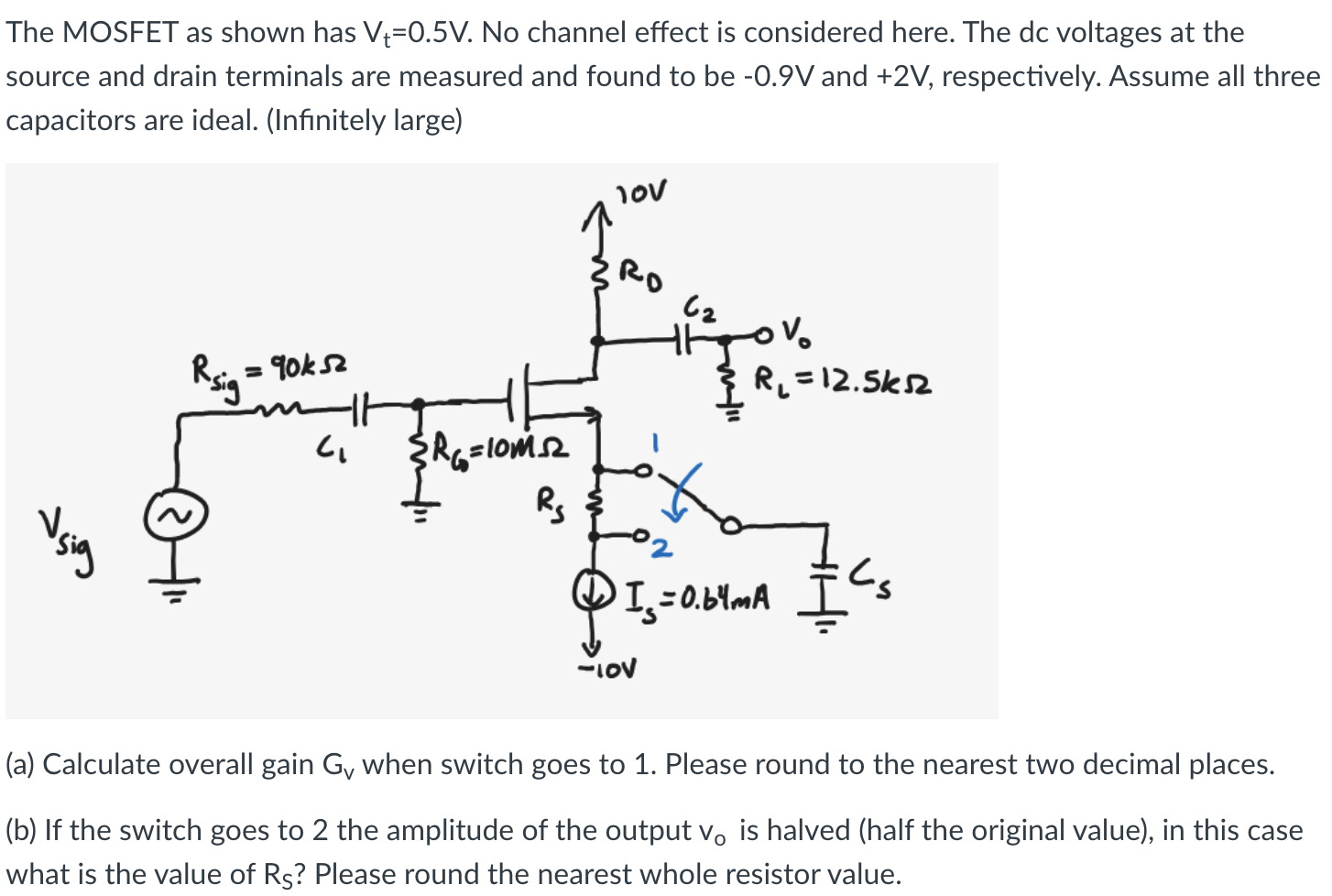The MOSFET as shown has Vt = 0.5 V. No channel effect is considered here. The dc voltages at the source and drain terminals are measured and found to be −0.9 V and +2 V, respectively. Assume all three capacitors are ideal. (Infinitely large) (a) Calculate overall gain Gv when switch goes to 1. Please round to the nearest two decimal places. (b) If the switch goes to 2 the amplitude of the output v0 is halved (half the original value), in this case what is the value of RS ? Please round the nearest whole resistor value.
